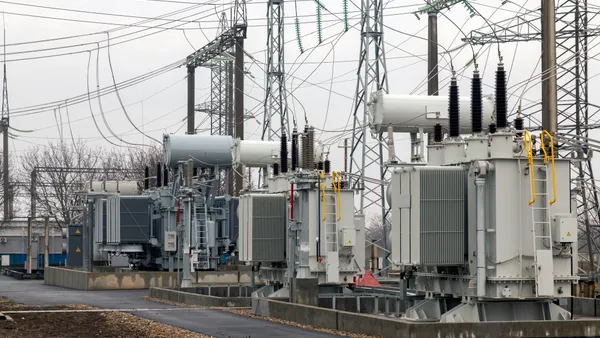The American Clean Power Association on Tuesday asked the Federal Energy Regulatory Commission to hold a technical conference to explore ways to improve how grid operators and utilities measure the value power plants, energy storage and other resources provide to grid reliability.
The U.S.’s patchwork approach to capacity accreditation, a measure of a resource’s ability to be available to support grid reliability, makes it hard to accurately assess resource adequacy and to make efficient investment decisions to maintain reliability, ACP said in its Tuesday petition with FERC.
“A wide variety of approaches are being developed across the nation and approved by the commission on an ad hoc basis,” the trade group said in the filing. “Capacity accreditation rules are oftentimes applied inconsistently within and across resource types.”
As the power system’s capacity needs evolve and the need for particular capacity attributes changes, capacity accreditation metrics must be adapted to properly measure those shifting characteristics, the trade group said.
Currently, grid operators are considering changes to the ways they accredit capacity, but there is no focused, coordinated discussion on the issue at FERC or the North American Electric Reliability Corp., according to ACP.
Capacity accreditation supports electric reliability in two key areas: grid planning and wholesale market design, ACP said.
“The selection and implementation of a capacity accreditation technique can impact whether, and to what degree, a region’s system planning and market design activities work in concert or in tension,” ACP said.
With growing clean energy deployment, electrification and fossil-fueled power plant retirements, the energy transition has significant implications for the system’s reliability needs, making accurate capacity accreditation increasingly important, the trade group said.
Amid ongoing changes, the timing of power system supply risks is shifting, according to ACP. The historic risk during summer afternoon peak demand periods, for example, is moving to evening and overnight hours as solar generation reduces midday risks, the trade group said. The filing noted that reliability risks are also shifting from the summer to the winter.
In addition, the power system is vulnerable to correlated power plant outages or derates during extreme conditions, ACP said. Cloudy weather could affect solar farms across a region, or gas-fired power plants on a single pipeline could lose their fuel supply if the pipeline is hit with an outage, according to the group.
A FERC technical conference would educate stakeholders, allow for open discussion with agency staff and potentially foster consensus and consistency among regions, so that capacity accreditation techniques help achieve electric reliability at just and reasonable rates, without unfairly discriminating between types of resources, ACP said.
The group asked FERC to hold the conference within six months.














